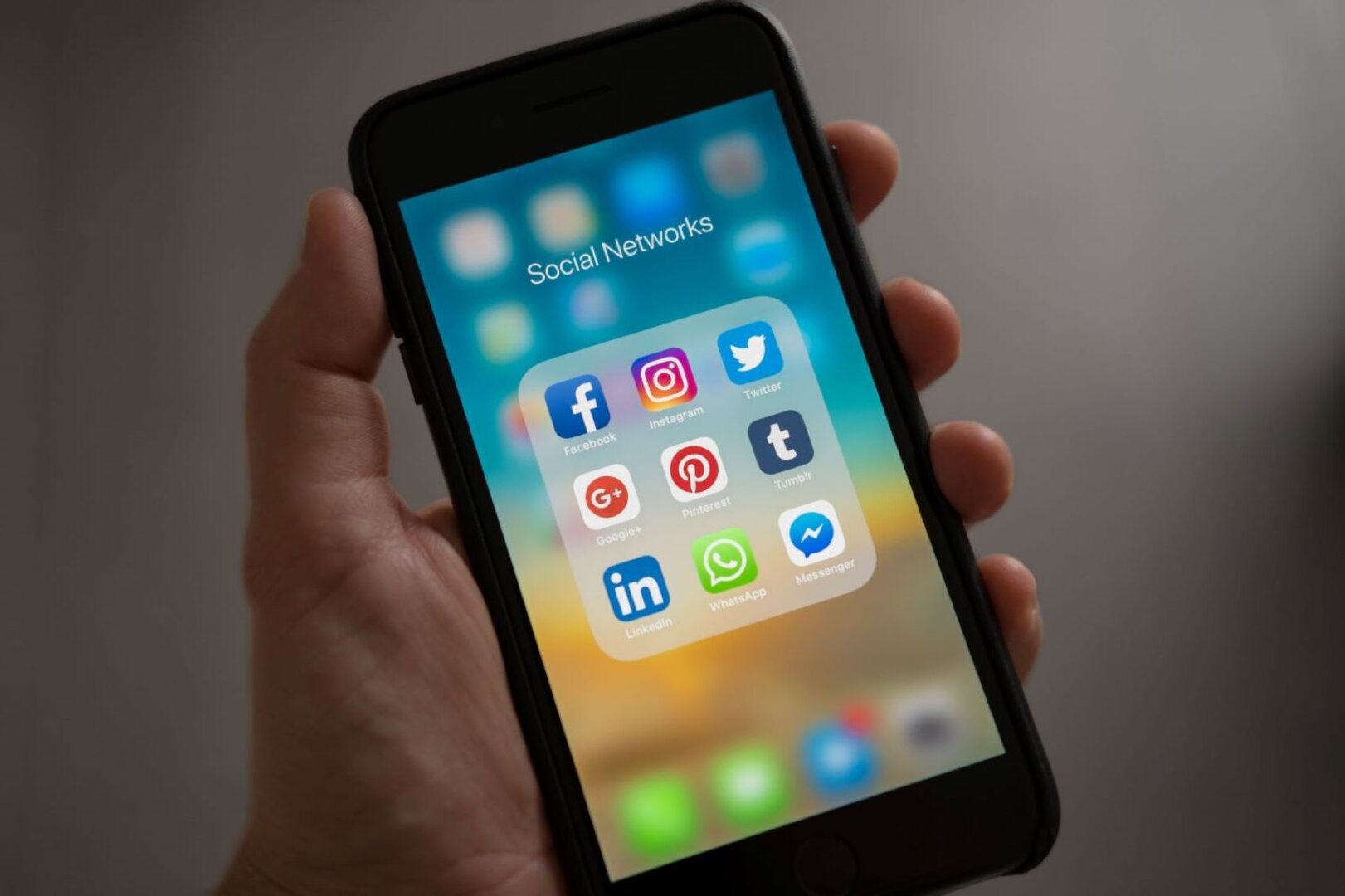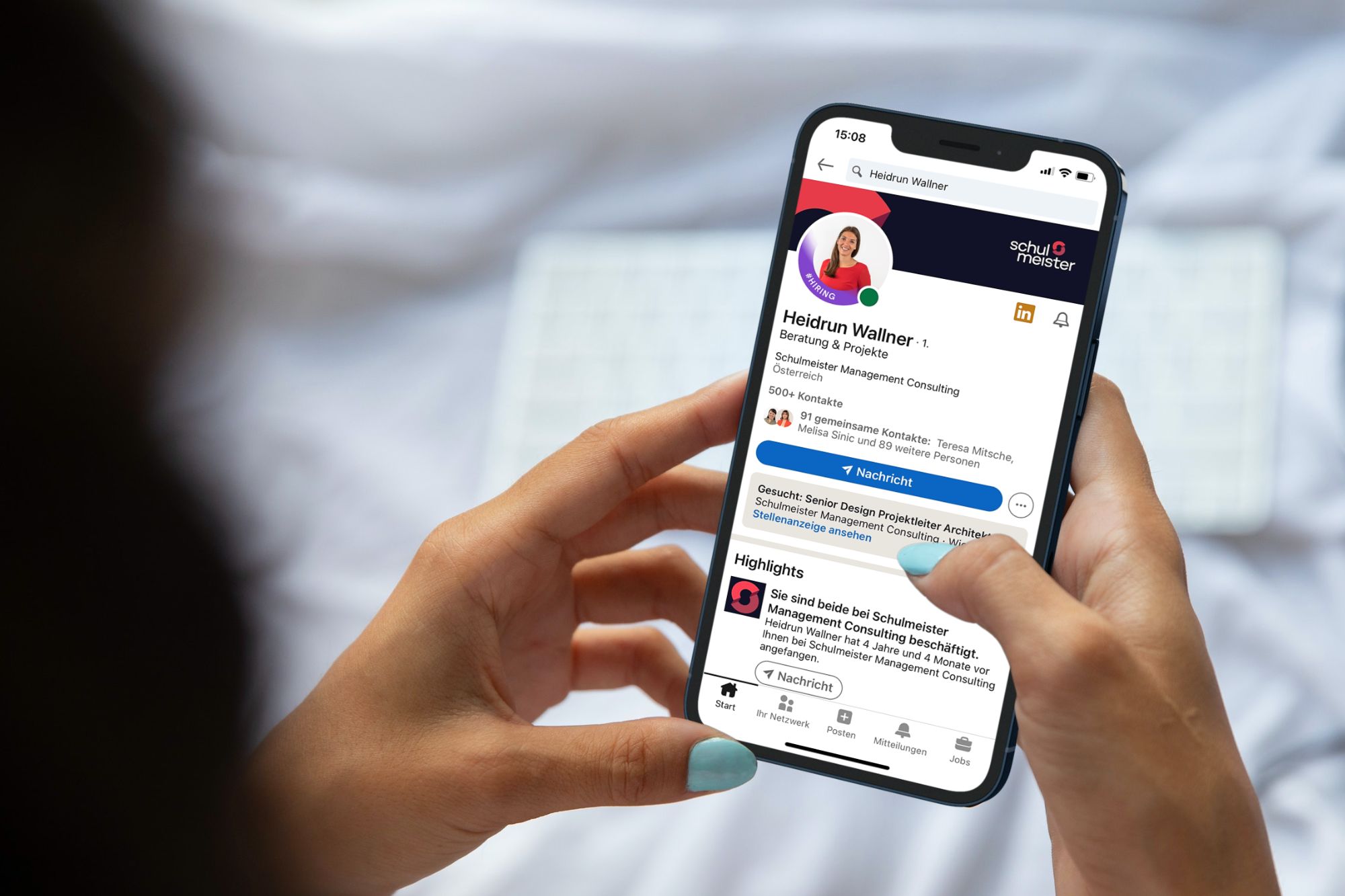What role does social media play in recruiting?
The increase in the relevance of social media in our society is noticeable in almost every area. It is therefore not surprising that they are also spreading in the professional context. In the application process, companies rely on active sourcing - i.e., the targeted search for and approach of potential candidates via social media. But even if you apply directly to a company, the recruiter may search for and review you on social media. A study by the digital association Bitkom from 2022 shows that one in five companies (21%) uses active sourcing, compared to just 12% a year earlier. So there is a clear upward trend.
Career-related platforms such as LinkedIn and Xing play a greater role in recruiting than the more privately oriented media such as Instagram, Facebook, YouTube or Twitter. According to the Bitkom study, 97% of recruiters focus on professional platforms, while 52% also look at private platforms.
What do recruiters pay particular attention to?
When browsing applicant profiles, recruiters show preferences regarding the factors that are particularly important to them. According to the Bitkom study, 98% of recruiters attach particular importance to professional qualifications, with only 37% paying attention to the stated hobbies. Contacts can also play a role, albeit a minor one: 14% look at the number of contacts a person has, 44% evaluate the quality of contacts.
Also interesting: 19% of the recruiters included in the study have already rejected applicants based on the material they found on social media.
Beware of these stumbling blocks
You should avoid the following at all costs to avoid ruining your job chances:
- Inappropriate content: Photos of your escapades from the last party weekend ended up on your Instagram page? For recruiters, that's a find that can mutate into a killer in the application process. Insulting or politically incorrect statements also leave an unserious impression of your person.
- Incorrect information: The information on your social media profiles should match the information in your application. If recruiters find contradictions online, it gives the impression that you are dishonest or have something to hide.
- Too little information: Your profile on professional social media platforms - such as LinkedIn & Xing - should be well maintained and provide a good impression of your career and professional milestones. Otherwise, recruiters won't pay attention to you because they can't get a good enough picture of you. Tip: A professional profile picture is extremely important.
- Too much information: While it is important that your profile is complete, there is a limit. If you give out too much personal information, it can cause you to be deemed unprofessional. Or you may be eliminated from the application process because of something that is actually irrelevant to the job. So remember: Give out information only in moderation. Limit yourself to professional aspects, possibly peppered with hobbies.
- Security gaps: If your profile is hacked, inappropriate or embarrassing content can be posted that can make your professional life difficult for years to come. That's why it's important to make sure your social media profile is secure. To do this, use strong passwords and always make sure to log out when logging into your profile on someone else's device.
- Too little activity: A low level of activity or lack of activity on your social media profiles could give the impression that you don't have the necessary skills to handle technology and social media. For some jobs - like marketing - this would be counterproductive. Your profile should be current and updated regularly.
Our tip: When using Instagram, TikTok, Facebook and all other social media that are mainly used privately, make sure that your account is set to private. This prevents recruiters from viewing your profile and helps you avoid some of the pitfalls mentioned above.
That's why your social media presence is worthwhile
The career-related platforms such as LinkedIn & Xing, on the other hand, should be fed with a lot of information and present you to recruiters in a good light. This is where you advertise yourself.
If you are unsure about what makes a good profile and what else you need to look for in your online presence, check out this article->LinkedIn tips: How to be attractive for recruiters
You're wondering why you should even bother with the minefield of stumbling blocks and why you shouldn't just do without LinkedIn & Xing? We've summarized the most important reasons why it's worth getting found online:
-
Increased visibility: By having a well-maintained profile on LinkedIn & Xing, you increase your visibility and can present yourself to a wider audience. While your qualifications used to be visible only to those companies you sent your application materials to, your skills, experience and achievements are now visible to all your contacts. This improves your career opportunities, as recruiters may actively approach you about their open jobs without you having to search for them.
-
Networking: Social media is a great way to network with people in your industry. You can connect with other professionals, expand your contacts, and build valuable relationships that can be beneficial to your career. Even if you're not looking for a job right now, these contacts may benefit you at a later date.
-
Job Opportunities: Many employers actively search for talent on LinkedIn & Xing and no longer advertise their jobs due to the lack of response. If you are present with your profile and make a positive impression, you can benefit from job offers that may not be available elsewhere. Plus, you'll spend less time actively searching for jobs.
-
Feedback: On social media, you can get feedback from colleagues, supervisors, and customers to improve your performance and increase your career opportunities.






